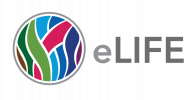© Pint of Science, 2024. All rights reserved.
In the UK 1,900 medicines are prescribed per minute! From bench to bedside, we look at how the medicines we take are created, developed and prescribed. How do we know they are safe? How do we know they work?
The event will start at 7:30. Please note that this event takes place on the first floor and is not accessible for those with impaired mobility. Children are welcome.
The event will start at 7:30. Please note that this event takes place on the first floor and is not accessible for those with impaired mobility. Children are welcome.
Targeting the innate immune system
Jens Madsen
(Associate professor in Child Health)
The innate immune system is working 24/7 to combat most potential infections. The concept that we might be able to make smaller versions of this to treat patients where there is clinical need is fascinating. Dr Madsen’s research focus on airways and the importance of innate immunity for the maintenance of a normal healthy lung and during infection, inflammation and repair processes.
Clinical trials – from the first ever trial in cider to clinical trials that can determine the best cancer treatment for our patients
Gareth Griffiths
(Professor and Head of Clinical Trials Unit)
The first ever trial in 1747 involved sailors with scurvy receiving cider, salt water or lemon juice. Gareth will talk through what that trial showed and how
modern day state-of-the-art clinical trials can now produce convincing evidence for patient benefit.
modern day state-of-the-art clinical trials can now produce convincing evidence for patient benefit.
Personalised cancer medicine: how personal will it be?
Peter Johnson
(Professor of Medical Oncology)
Modern technology lets us look into cancer and the places it can grow in minute detail. We have gone from the age of hand drawn maps to the equivalent of Google Earth in just a few years: can the treatment we use in the clinic keep up?
100,000 Genomes Project
Frank Ratcliff and Catherine Mercer
(100,000 Genomes project team)
The 100,000 genome project will sequence 100,000 genomes from around 70,000 people to learn about rare diseases. It is the largest national sequencing project of its kind in the world but what do we do with the results and who should have access to them? Hear from the people involved through an interactive activity.
Map data © OpenStreetMap contributors.

